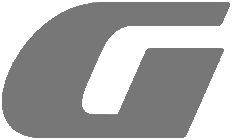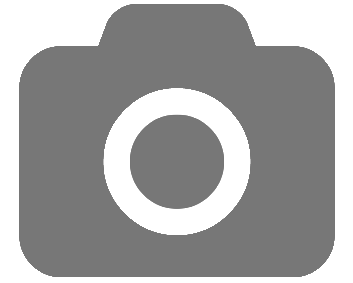“She successfully negotiated for her life’s happiness.” - Stuart Diamond, Getting More: How You Can Negotiate to Succeed in Work and Life
I’m excited to finally be letting the world know that I’ve moved onto a new opportunity after three years at Toptal. I've founded Integral Labs, a company that will allow me to work more closely with many companies on a variety of projects. For those wondering, I'll still be fully remote.
While this article touches on my personal thoughts and experiences, I hope it’ll provide a framework for others looking to make important and often difficult career decisions, in a world where change is the only constant.
Moving On
Career shifts always feel monumental. These instantaneous pivot points feel like they’ll forever change the course of your life and in many ways, they do.
This particular decision held similar weight, but somehow felt different. It didn’t feel like I was heading into a snowstorm with summer tires, but that I had actually been preparing for this change slowly, but surely, for the last three years.
The outside world only sees the most dramatic event rather than all that preceded it. - James Clear, Atomic Habits
The last time I "quit my job" was in 2016. It took me 10 months from the moment I started looking to land a role that I was happy with. This time, it took weeks from the day I mentally decided that it was time to move on. In 2016, I cried out of overwhelm as I gave my notice. This time, I made my decision with confidence. In 2016 time, I took whatever I could get. This time, I negotiated multiple contracts. And this time, I even had multiple companies trying to entice me to choose them.
This pivot has given me the opportunity to look back and assess what has changed. The short version is: a lot. The longer version is that I’ve taken a different approach to my career. In 2016, I felt stuck. I felt like I was digging my way out of the very path that I had built for myself.
Now, I’ve recognized that life is always changing and to stop viewing it as a linear path, but instead a continuous series of experiments. There is no longer an end-goal, other than the constant pursuit of learning and minimization of regret. While there’s still a long way to go, this approach has given me more opportunities and confidence than I could’ve ever imagined.
And upon reflection, I can trace it back to the distinct realization that in life, “you grow or you die”. Luckily, I spent the last three years growing myself even when no one was asking and took control of my future, because no one else would.
If you don’t prioritize your life, someone else will. - Essentialism
This article is about my journey and evolution in the complexity that is one’s career, but I hope it also provides a framework for others to consider how they might “unstick” themselves and find confidence in their own unique path, through the approach of continuous iteration.
Inevitable Iteration
During my 3 years at Toptal, I was lucky enough to wear many hats. I had two official titles, but throughout the years I also had 5 direct managers and worked with hundreds across the organization. Things were always in flux. And throughout that flux, I also learned to be in flux.
As I picked up new skills out of necessity, I started to associate skill acquisition with opportunity. The more I stood up to the plate to learn, the more I was rewarded with additional responsibility. I could feel the cause-effect relationship being set it motion, and pushed it as far as it could go. That subliminal relationship ended up being one of the most powerful lessons that I’ve learned: opportunity is often present, but almost always hidden. It must be seized, and in many cases created. And while these ideas may be found in some textbooks, I think they can only truly be digested through practice.
In effect, the act of constantly iterating helped me recognize that opportunity wouldn’t show up in front of me. I had to iterate in thoughtful, but not always linear ways, to uncover opportunity that would never have been dropped on my doorstep.
Bloomberg cites that the average American career includes 15 job changes and that perhaps more importantly, getting to the C-suite (if that’s your goal), is no longer a “linear pursuit”. They use the metaphor of instead climbing a tree, through adding branches in the form of skills, in order to reach the top. The more branches, the higher the likelihood you’ll get there. The sturdier the branches, the higher the confidence you have to reach the top.
“Younger professionals approaching a career pivot—even a major one—ought not to think of it as a one-time “do-over” but as part of a new type of professional path in which the only constant will be change." - Jay Liddell
LinkedIn further corroborates this, by indicating that career switching happens much earlier, with people pivoting in their 20s and 30s, rather than their 40s or 50s.
But keep in mind that career switching doesn’t need to be black or white. Despite being at the same company for 3 years, I feel like I went through multiple career switches, even though it didn't always warrant an official title change. Instead, I chose to leverage the dynamism of my early roles to learn as much as possible, showing up every single day to a new problem. If you don’t have the ability to introduce this into your role, you must look outward.
Becoming Anti-fragile at Work
The most pernicious aspect of procrastination is that it can become a habit. We don't just put off our lives today; we put them off till our deathbed. - Steven Pressfield, The War of Art
As I started to associate constant change with constant opportunity, I made an explicit decision to make learning my top priority; my north star. And soon, I would view this response to constant change as anti-fragility.
Nassim Taleb coined the term anti-fragility as “beyond resilience or robustness. The resilient resists shocks and stays the same; the anti-fragile gets better.”
Life continuously teaches you a lesson: change is the only constant. Each time you think you’re “on the right path”, life gives you a kick in the nuts, with a reminder that you still have much to learn. Battling the randomness of life will only create additional roadblocks for you. If instead you choose to orient around what you can change, through diversifying your skillset and experience, you are indeed learning to become anti-fragile. So when the world gives you a shock, you’re not just ready, but built to embrace the hit.
My first role at Toptal was on their growth team. Our mandate was vague, but extremely straight-forward: “grow revenue up and to the right”. We were trained to distribute risk and find opportunity where others weren’t expecting; to iterate until something worked, and then double down. As I learned to experiment effectively, I found parallels between my role in scaling the company and my ability to scale myself.
That concept took on a life of its own and is still evolving. But there have been two big pillars of this evolution so far: regret minimization and persistent skill acquisition.
Regret Minimization
I think many people feel stuck in their roles and perhaps their lives. Sometimes this is due to their inability to shoulder risk. But unfortunately, risk is a part of life.
If you take average risks you will, by definition, get average results. This is true both in business and in life. So if you tailor your life around the status quo, you become fragile; brittle to the monotony of an average life. When the market shifts, you shift. When a skill becomes obsolete, so do you.
Instead of minimizing risk, I instead like Jeff Bezos’ pursuance of regret minimization. Of the paths that you can take, which path will most likely result in the least regret later in life?
Risk is a surprisingly interesting subject, both in the context of economics, and life more broadly. There are so many industries built on risk -- insurance, finance, etc -- but we never talk about how to make it easier for people to take risks.
— James (@jamesg_oca) August 31, 2019
A thread:
In targeting regret minimization, you are inherently handling risk minimization across both your current and future states. And that’s the key differential. Most people feel they can shoulder the risk of their current state, because they’re already living it, yet struggle to stomach new risk. I would encourage those people to ask themselves the question, “What would you do to acquire this [role, partner, opportunity, etc], if you didn’t already have it?”.
One leader I worked with admitted to staying at a company five years too long. Why? Because he was so busy in the company he didn’t take time to decide whether he should be at the company. - Greg McKeown, Essentialism
It’s scary to take something in your life that’s average, or even good, and replace it with the unknown. Humans deviate from risk like it’ll will kill them, when in reality, the more common “killer” is staying still. Parallel to cooking food in a frying pan, people get burned if they don’t move. If you don’t know how to leave a bad situation, you stay there and burn. If you are oiled up to move when the time is right, you turn golden.
The ability to choose cannot be taken away or even given away—it can only be forgotten. - Greg McKeown, Essentialism
When faced with a decision like switching or leaving a job, I’ve started to look for pockets of opportunity via the simple question, “Where will you learn the most?”. It’s nice to get paid (and nicer to be paid well), but it’s even nicer to stretch and come out of a role further ahead than where you started. This will put you in a position of significant leverage over those who spent that same time—often years—plugging and playing, only to find they’re not sure where they can go next.
The professional tackles the project that will make him stretch. - Steven Pressfield, The War of Art
By designing around regret minimization, I’ve tried to take a more broad view of risk. Is it risky to leave this job? Sure, but it’s also risky to not explore other opportunities out there. If I never try, I’ll never know, and therefore I’ll lose out on the opportunity to gather more data for the experiment that is my life.
“Some departments at NASA, for instance, were overhauling themselves by deliberately instituting organizational routines that encouraged engineers to take more risks. When unmanned rockets exploded on takeoff, department heads would applaud, so that everyone would know their division had tried and failed, but at least they had tried.” - Charles Duhigg, The Power of Habit
Saying Goodbye to "Leadership" (For Now)
Part of my confrontation with regret minimization was deciding to step away from leadership, at least for now.
For those who don’t know, I spent the last year and a half leading a team. I learned a lot about leadership, people, and processes along the way. But unfortunately, I felt my skills atrophying and despite trying my best to lead by example, I found myself spending the majority of my time leading, and no longer doing.
I must be clear that I’m very grateful to have been given the opportunity to lead a large team so early in my career. Partially because I have now tasted it, and no longer have this lofty goal in my head that I could’ve spent my whole career trying to achieve. I now know exactly what leadership entails and while I still have much to learn, I also can move onto other things with a clearer mind and motive.
Sometimes this is impossible because people can become so addicted to leadering that they resist any attempt to lower the amount of it they do. - Venkatesh Rao
It would be a lie if I said I didn’t hesitate to give up my title and my perceived value. Once being considered “an executive” and getting to lead a team of ~20 certainly gave a nice boost to my ego. And sometimes I still get a dopamine hit when I get a LinkedIn InMail request from a hopeful candidate to join my previous team. But those moments are fleeting.
I’ve learned to break away from the potentially toxic association between my perceived value and the title that sits on my profile, and instead make decisions around what truly enables me to continuously improve and uplevel myself﹣not what impresses others. I've also come to appreciate that effective leadership comes in many forms and often not from those flaunting the title.
I'm excited to get back into spreadsheets, grow the heck out of new products, and have fun while doing it. And if I am truly minimizing regret and not risk, I will regret optimizing for external validation (a title), versus building more branches of my tree.
The Only Move That Matters Is Your Next One
Once I decided that I wanted to start moving into a new role, I was a lot more intentional than the last time around.
This time, I specifically wrote out what I wanted. What does my ideal future look like? I used this to guide my decisions, but with one constraint: I tried not to look too far into the future.
“It’s no longer about finding a career for the rest of your life, but what could you do for the next few years—and what would you learn.” - Arianne Cohen
I’ve consistently found that basing decisions out of hypotheticals too far into the future never ends up faring well. Change is constant, including people and plans. And the further out we look, the more caught up we get in the “what ifs”—most of which would never pan out.
- What if this company goes public?
- What if my boss really does give me a promotion?
- What if X, Y, Z problem gets fixed?
Instead of trying to project where something would take me in 10 years, I tried to envision what would be best for me now. What in the short-term would I regret not pursuing?
- Which opportunity would I want to show up to tomorrow?
- With which people would I want to spend every day with for the next year?
- What will I most certainly learn in this role over the next few months?
Promises or hypotheticals are nice to play mental gymnastics with, but the reality of what I would be living was more concrete and actionable. Instead of getting stuck trying to over-optimize for the future, I recognized that no perfect decision exists, particularly across longer timelines and more importantly, the decision I needed to make should be based in today.
Finally Finding Leverage
The final puzzle piece in my journey was a change in my confidence.
Let’s first acknowledge that applying to jobs sucks. It is an open invite for imposter syndrome to kick back in because you don’t have specific skill #18 or unprepared interviewer never called you back. That’s exactly why I decided to take a different approach this time around: I applied to roles when I wasn’t even searching. And by applying, I don’t mean sending in my resume, but by subtly letting the world know what I could do.
I encourage others to do this through side hustles or projects that allow them to learn, while also working towards some passion of theirs. In fact, I believe the biggest contribution to my happiness and success over the past year has not been my full-time job or my title, but instead my side projects, including this blog. Many millennials are finding the same, according to Bloomberg.
“A third strategy, however, involves adopting “side hustles” that aren’t necessarily related to your full-time gig. Anything from developing software to giving gardening advice to running your own nonprofit, such extracurricular activities will help strengthen other muscles—and could make you more desirable to other employers.” - Arianne Cohen
By working towards my skills on my own terms, I had unknowingly made myself more hireable. So the second I opened myself up to the concept of leaving, the world did too. In fact, I had 3 offers on my doorstep within weeks of my resolve, without having to publicly announce anything. All three of them were inbound and people who had seen my work online.
Not everyone will have the same luck and it took a great deal of work to get here, but the idea is that it’s important to spend the time becoming the person that someone would want to hire, even when you're not actively searching.
A Constant Evolution
If you’ve gotten to the end of this piece, hopefully you have the seed that you need to start iterating towards your goals, which will be the fuel to becoming anti-fragile. This is a constant evolution, simply because there is no end. Instead, I encourage people to orient around learning and moving in the right direction, instead of some arbitrary title or checkpoint years in the future. Even with my new venture, I see this as a continuum of this adventure, where I'm excited to learn from a new set of smart people.
"Never forget: This very moment, we can change our lives. There never was a moment, and never will be, when we are without the power to alter our destiny." - Steven Pressfield, The War of Art
PS: If you liked this article, you might also enjoy my podcast on all types of things like tip culture, technology people feared, or the the most influential artist you've never heard of, or my latest project.
Recommended Reading:












